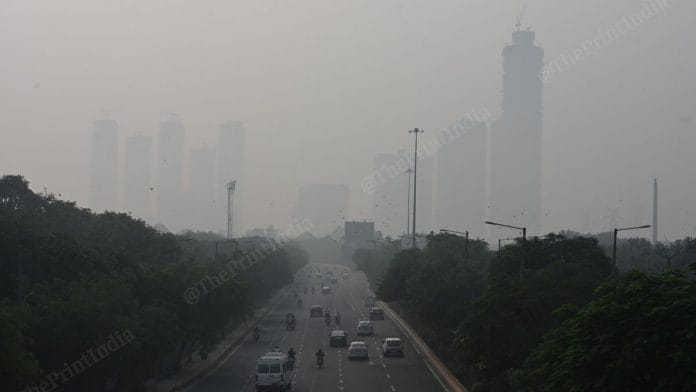Thank you dear subscribers, we are overwhelmed with your response.
Your Turn is a unique section from ThePrint featuring points of view from its subscribers. If you are a subscriber, have a point of view, please send it to us. If not, do subscribe here: https://theprint.in/subscribe/
What the citizens of Delhi/NCR burst beyond anyone’s farthest imagination this Diwali were not the supposedly ‘eco-friendly’ green crackers and/or the regular more polluting ones alone, but along with them, and more seriously, the sense of ‘Citizens’ Collective Responsibility and Accountability’.
The day after Diwali the people of Delhi and the NCR woke up to ‘dangerous’ levels of AQI. A high-level bench of The Supreme Court had overruled its earlier blanket ban against bursting crackers on Diwali that had also been placed by the previous government in 2024. The court tried to take a more ‘balanced’ stance by permitting ‘green crackers’ for a few hours and for limited days of the festival period with other regulatory conditions in place. This was in view of the Delhi government’s argument that bursting crackers on Diwali was an expression of ‘cultural celebration’ in line with the sentiments of the residents of Delhi and that regulated bursting of ‘green crackers’ should be permitted by the apex court. This seemed to be a reconciliatory and welcome move and citizens were expected to abide by it. But reality unfolded in an extremely different way on the evening of Diwali.
As the evening progressed into the wee hours of the morning, it became quite evident that with the crackers, citizens’ collective sense of responsibility and accountability was also up in thick smoke that was going to indiscriminately choke the lungs of Delhi/NCR region for a few days to come.
Culturally and traditionally, Diwali is ‘Deepotsav’ – celebrated with the lighting of lamps to mark the coronation of Lord Rama. One wonders whether any account of this celebration in the Ramayana mentions the bursting of crackers that pollute the environment. Unlikely, considering the fact that Lord Rama spent 14 years of exile in the pristine environment of the forests.
The lighting of lamps is symbolic of the victory of the ‘Good’ over ‘Evil’. The ‘good’ of humanity, including the environment, is an essential teaching in our scriptures and in celebrating the life of Lord Rama we are essentially celebrating that spirit. How can we forget the sense of social well-being and the sense of duty and responsibility expressed by the character of Lord Rama himself? To emulate these virtues is the spirit of worshipping Lord Rama on Diwali. As responsible citizens the ruling of the Supreme Court should have been honoured. But unfortunately, that did not happen.
What is the point of a ‘senseless’ and ‘irresponsible’ celebration if it adds to the already existent and persistent pollution problems; if it gets politicized and a political ‘blame game’ follows? The blame is to be squarely put on the citizens who failed to act responsibly. Would we have shown less respect to the celebrations if the orders of the Supreme court had been followed? Not only would we have breathed easier but would have felt a sense of pride in having taken a small step to curb the problem of pollution to the extent it was possible for us to do so.
The truth is that no individual feels a sense of regret thinking that a ‘small’ indulgence on his or her part would not have made a great difference. Regretfully, what is lost in this thought is the sense of responsibility and accountability for the disastrous consequences of collective action and/or inaction.
Citizens must realize that though controlling pollution is largely a state responsibility, to some extent it is an individual responsibility too. Controlling pollution is a ‘public-private partnership’ – a partnership between state action and collective actions of citizens. Individual actions will translate into a collective response against pollution if this thought prevails. We cannot afford to be a ‘sleeping partner’ in this joint effort.
A remarkable and laudable example of citizen’s sense of collective responsibility and public integrity is the incident that occurred in Japan in April this year. When the ETC (electronic toll collection) system malfunctioned for 38 hours, over 24,000 users, who had availed of the free passage, voluntarily paid the toll fee realizing that a loss of revenue to the state is a loss to the well-being of its people. It is high time that we take a lesson from such incidents in our own self-interest and our future well-being and show collective social responsibility and integrity to the extent expected of us.
Shashi Motilal
These pieces are being published as they have been received – they have not been edited/fact-checked by ThePrint.


